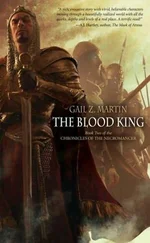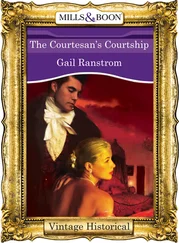A big, blonde woman, a little taller than I was, yellow hair piled on top of a head held high. A graceful walk, a long neck gracefully bearing her head over her Viking breast. I knew that she would be beautiful, it was inconceivable that she wouldn’t be, and in some perverse way I took comfort both in her beauty and in her complete difference from me. She was one thing, I was another. She was one story, I was a completely different one. However strange it may sound, I hardly ever thought about her, and I still don’t. A German by birth. Worked here in the Rockefeller Museum. Had two sons with him. Her father, I know, owned a chain of retirement homes in Switzerland, and at a certain stage he offered Alek a job working for him. “Of all things in world, can you imagine me calling some laundry to find out when they’re returning those Nazis’ sheets?”
Even when Alek began meeting Hagar, and avoided taking her to their home, I wasn’t angry, even though I guessed that it wasn’t his idea not to take her there. I was one thing, and Ute was a different world, and just as I had no wish to know about her, it seemed natural to me that she wouldn’t want to be reminded of my existence.
All these thoughts, all this blocking out, actually came later, in the course of many days to come. But then he said, “I have a woman I live with now,” and so I said “At Fink’s.…”
I detest all those twitters of “he said,” “and so then I said,” all those little female pecks in words. I detest them when it comes to me and Alek, and in spite of that and just because of that I’ll repeat it again.…
He said “I have a woman I live with now,” to which I replied, “At Fink’s,” but the words had no connection to the transparent radiance flooding me under my skin. Or the tender liveliness of his voice.
Two o’clock in the afternoon at Fink’s was a new despair; not because the “real” Alek paled in comparison to the imaginary one. Not at all. In days to come I developed an intimate acquaintance with the particular despair of meeting the one who is present in your thoughts all the time. The impossibility of collecting all the times into this one time, and the pointlessness of it.
Alek occasionally says: “I remembered you …” or: “And then I thought of you, what you would have said.…” I myself cannot pick out moments like this, because I remember him and think of him all the time.
I hadn’t been in Fink’s for over four years, it was still shrouded in the same dim light in the afternoon, with the exotic coolness of the first air conditioner in Jerusalem. The atmosphere of a black-and-white spy movie. When I was already seated opposite him I found it difficult to look into his face, as if afraid of being burnt, and opened with a political speech, of all things, as if it wasn’t Alek sitting there. “Do you really believe that?” he asked me in polite surprise when I parroted that now-Begin-was-going-to-annex-all-the-occupied-territories-set-the-Middle-East-on-fire-and-isolate-us-from-the-world. “Don’t you?” “Propaganda is one thing and action is another, but when people like you … when even you begin to believe in propaganda, perhaps there really is problem. In any case,” his voice smiled, “you’ll agree with me that a man like Begin who thanks his wife so nicely, and in the language of the Bible what’s more, can’t be all bad.”
“What made you leave the university?” I asked. “Nothing really made me leave, things just took their course. You tell me, what do you think, could you spend whole year debating where Baudelaire is more symbolist and where he is more decadent?” I couldn’t because I’d never read Baudelaire. At the table next to the curtained window looking onto King George Street three men were speaking German, they didn’t look like tourists, apparently foreign correspondents, or maybe spies. It was quarter past two in the afternoon, and Alek ordered wine.
A silence that lasted too long obliged me to choose between looking at him and talking. “I suppose you want us to finalize the matter of the divorce?” “The matter of … if we need to … how did you say? … finalize? If you say then we’ll finalize it.… You haven’t told me how you are yet.”
The next item on his gentlemanly agenda was to ask me about Hagar, and in the middle of an adorable story about how she sat up in her sleep with her eyes closed and said — I suddenly faltered, not knowing if I was trying to endear my daughter to her father, or using her to make me seem sweeter in his eyes. And then Alek, all attention, very carefully, leaned over and took the salt shaker out of my hand. “Not like this,” he said, “no … not like this.” “Not like this — what?” I protested angrily. “To talk like this, to meet you like this, it’s not normal.” I could say that it was this sentence that broke me up, or the touch of his fingers on my cheek, or the almost voiceless murmur of “Noichka,” but in truth I had come to him defeated in advance, helpless to deny.
The next morning Alek came to me at home, held me patiently when I sobbed over his shoulder with clenched teeth, and came again later in the week, until a pattern of clandestine life was established, if it could be called a pattern at all. Sometimes we would meet every two or three days, sometimes weeks passed without my seeing him, and it also happened that he once disappeared for almost four months. I could never point to a reason for his comings and goings, and when we parted I usually didn’t know whether I was going to see him in two or three days or whether weeks would pass again.
What is there to say about the humiliations of being somebody’s mistress that hasn’t already been said? Actually, perhaps I do have something new to contribute: a kind of gradual recognition that, without any connection to Ute and “I have woman I live with now,” Noa Weber needs the underground. That the clandestine procedures of a humiliating secret protect me and my soul no less than they protect him and her, for I could not bear a stranger to see me naked with him, and almost every moment with him feels like nakedness.
Not for a moment did I fantasize that Alek would leave Ute and move in with me. Our meetings left me exhausted, prickly with a cold energy, unable to sleep. From the memory of our first year together I could imagine how staying with him for any length of time would devour me, how there would be nothing left of me, no human image but Alek’s. And when Nira Woolf became part of my life, and my life began to take on an identity, and when I already had “talents” and “opinions” and “achievements” of my own, this awareness grew even stronger.
ALEK ASKED
When Alek asked my permission to see Hagar I couldn’t deny him, let alone her. But this permission, which I didn’t give at once, cut me into pieces, because it obliged me to tell real lies.
And so I roped in as consultants Tami and Liora — the oldest student in the law faculty, who before starting to study law had completed a degree in social work — and even though I didn’t tell the truth in this consultation, I needed it. And despite the deception, it helped me.
Me: And you don’t think it will be too confusing for her? He’s not going to stay here forever.…
Tami: The idiot … what does he have to see her for in the first place? Just to satisfy his ego?
Me: Believe me I have no idea.
Liora: The problem is that he has the right, from the point of view of visiting rights I mean.
Me: As far as I know him, I don’t think that he’ll demand visiting rights.…
Tami: The idiot … the question is what’s right, what’s good for Hagar.
Liora: What’s right for Hagar is for her to meet him, even if nothing comes of it, and even if it’s a disappointment. Besides, it’s impossible to know what will happen in the long term, with him, I mean, parental competence can change over the years. But even if nothing changes, in my opinion the best thing for her is to face up to reality, because in my eyes at least, the most harmful thing is to live in a fantasy.
Читать дальше












